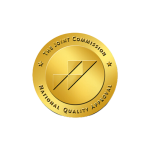What You'll Learn:
- Warm Welcome and Personalized Attention
- Comprehensive Treatment Approach
- Individual and Family Therapy
- Holistic Therapies and Aftercare
Inpatient drug rehab is the premier treatment for drug and alcohol addiction. There is no better way to get healthy than spending time in a residential treatment center. Entering inpatient treatment can be intimidating if you don’t know what to expect. It is important that we demystify the process to help you feel more at ease.
The good news is that the time you spend in rehab can turn out to be some of the best weeks of your life. Fifty years ago, addiction was treated as a moral problem, but times have changed. We now understand that it is an illness. As such, recovery is all about healing and is most successful in a comfortable environment.
Let’s get into what you can expect when you are admitted into the rehab program at the luxurious American Recovery Center in Burbank.
A Warm Welcome
Addiction is an illness that requires medical treatment. However, entering the inpatient rehab program does not feel like being admitted into a busy hospital. You will be receiving much more personalized attention and when you arrive you will receive a warm welcome. You will meet staff members who help orientate you. They will show you the room where you will be sleeping and all the amenities available.
Medical Detox
If you're physically dependent on substances,
you will need to detox before you continue with the program. Detox takes a few days (depending on the substance and how long you have been using it, among other factors). In inpatient treatment, your detox will be overseen by medical professionals who will ensure the process is as comfortable and risk-free as possible.
Psychiatric Treatment
American Recovery Center, like all the best rehabs, is a dual-diagnosis recovery center. Treatment is based on the understanding that addiction rarely occurs in isolation. Rather, there is usually a co-occurring mental illness. In many cases,
it is the mental illness that triggers the substance use and consequent dependence.
Treating the addiction without treating the mental illness is not likely to be completely successful. This is why you will see a psychiatrist in inpatient treatment. They will work with you to diagnose any co-occurring disorders, such as depression, anxiety disorders, bipolar disorder, and others.
If necessary, they will prescribe non-addictive medications to help treat the mental illness. You will also work with your individual therapist in exploring your mental health, as we will discuss below.
The Inpatient Treatment Program
You probably have an idea of how inpatient treatment looks. You are in a center where you have no access to substances, and you spend time in groups talking about your addiction and other issues. This is accurate, but there is a lot more to rehab than support groups. You will participate in a structured program which provides you the skills you need to live a happy life without substances.
The core program is based on a number of mental health treatment principles. At the heart of treatment programs today is CBT and DBT.
Cognitive-behavioral therapy (CBT) is a therapeutic foundation that focuses on the links between thoughts, feelings, and behaviors. CBT teaches you how to challenge distorted thinking, helping you make decisions based on rationale when the urge is to use substances.
Dialectical behavioral therapy (DBT) melds Western and Eastern wellness principles to build resilience in a meaningful life. Mindfulness is at the heart of it, but you will not simply be meditating. The principles of mindfulness are trained within a structure that will help you manage difficult emotions. When you are addicted to substances, you are at the whims of your emotions and urges.
The mindfulness of DBT allows you to take a step back, taking yourself out of the buffeting winds rather than trying to fight against them.
The core treatment program will be taught to you in a group setting, but you will be expected to practice the principles you are learning between sessions. However, you will not be alone in this.
Individual Therapy
In addition to the core program, you will be assigned a therapist for individual therapy sessions. Together with the therapist, you will work on underlying issues,
including any co-occurring mental illnesses. You will explore where you learnt your specific coping mechanisms and how your upbringing influenced the way you interact with the world.
Your therapist will also help you with any issues you are having in treatment. You can discuss any doubts you have, as well as any challenges you are facing. The time you spend with your individual therapist is entirely yours. It is a crucial aspect of the inpatient treatment process.
Family Therapy
Addiction is often called a family illness, as it impacts a person's entire family. This is especially true if you are living with your family. In rehab, family therapy is often recommended. You may benefit from discussing the family system with them and a therapist, rebuilding your relationships and giving them the support they need as well.
If your family is not able to come to the treatment center, it will be possible to arrange video sessions with them. Of course, it is up to them whether or not to attend and it is not possible to force someone to introspect when they do not have the internal motivation.
For people who are struggling with family who will not attend therapy, your individual therapist will help you learn to manage your personal relationships with them, preparing you for your experience with them post-rehab.
Holistic Therapies and Aftercare
The core program and your individual therapy sessions will take up the majority of your scheduled time. However, they are supplemented by alternative therapies as well. These include things like art and music therapy, yoga, and breathing classes.
We also understand that recovery does not end the day you leave the center.
Getting settled back into your regular life can be intimidating. In rehab, you will prepare with your individual therapist for life after rehab. You will also have access to aftercare services once you have left. You will have the opportunity to continue therapy with your individual therapist and attend group support sessions.
Preparing for Inpatient Treatment
You now know some of what you can expect from inpatient drug rehab. With your mind at ease, you can prepare for treatment with the understanding that this will be a meaningful and often-enjoyable time.
Begin Your Healing Journey at American Recovery Center
Are you or a loved one ready to overcome addiction and start a new chapter in life?
American Recovery Center in Burbank is your destination for compassionate, comprehensive inpatient drug rehab treatment. Call today at
866-484-2502.


